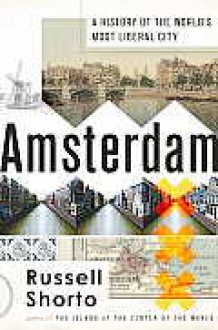
When the musical Hamilton premiered in 2015, it was hailed as a bold reimagining of the events surrounding the founding of the United States. What most audience members probably didn’t appreciate, though, was that it was only the latest in a long line of reimagined interpretations of the events of American independence. Those who did likely benefited from reading Michael Kammen’s book on the subject. In the first of a trilogy of studies he wrote on various aspects of the American historical imagination, Kammen recounts the evolving ways in which Americans remembered their revolution and what these changes reveal regarding the nation’s attitudes about its legacy for them.
Kammen begins by considering what he terms “the problem of tradition,” that problem being the absence of one throughout much of America’s existence. To outside observers living within the well-worn grooves of generations of traditions, Americans seemed to lack one. Though this would change, that change was gradual, and initially it was focused on the first defining event in the new country’s history. Though a natural choice it was not a conscious one, as Americans grappled with their revolutionary origins only as they began to slip away from them.
Kammen divides this process into stages. The first of these began with the Revolution itself, as its participants argued over the meaning of what they were doing. George Washington’s death in 1799 foreshadowed the passing of the “founding fathers,” and with them any firsthand verification of their intentions and goals. Though the last of the signers of the Declaration of Independence wouldn’t pass for another third of a century, Americans began to reflect more on their achievements and their legacy. The celebration of the Fourth of July was an integral part of this, but it evolved in the 1790s into a partisan tradition which persisted until the demise of the Federalist Party after 1815 ended their conflict over what the Revolution achieved.
By the 1830s, there was a general reverence for the Revolutionary generation and a common desire to maintain what their sacrifices had earned. Exactly what it was that they had earned, however, remained a subject of dispute. The burgeoning sectional crisis increasingly infected this debate, as again warring sides played up different aspects of the Revolution to suit their vision for the country. By the mid-1870s, the ebbing of this conflict led people to find within the Revolution a common point of unity, with considerations of its political meaning dropped in favor of celebrations of a hazy nationalism. This ebbed and flowed over the course of the twentieth century, with the scholarly consideration of the Revolution’s place in American tradition increasingly distant from popular (and apolitical) consideration of the Fourth July as little more than a national birthday.
Kammen recounts the developing place of the American Revolution in a series of chapters considering its presence in art, poetry, and fiction. These are presented separately by subject, making the book less of a sustained narrative than an interconnected collection of essays that can be read separately. On nearly every page he offers an intriguing detail or a perceptive analysis that reflects both his immersion in this legacy and his thoughtful consideration of it. Though some of his conclusions may seen dated with the passage of time, his book still rewards reading for its account of the development of American nationalism and how this was reflected in the nation’s culture over the first two centuries of its existence.

 Log in with Facebook
Log in with Facebook 













